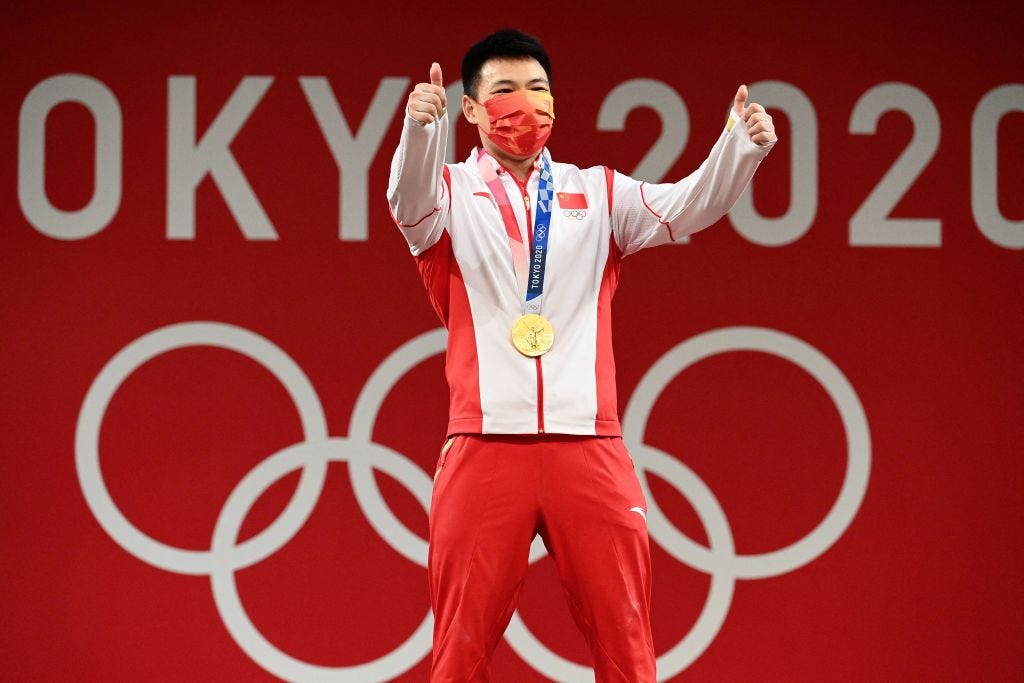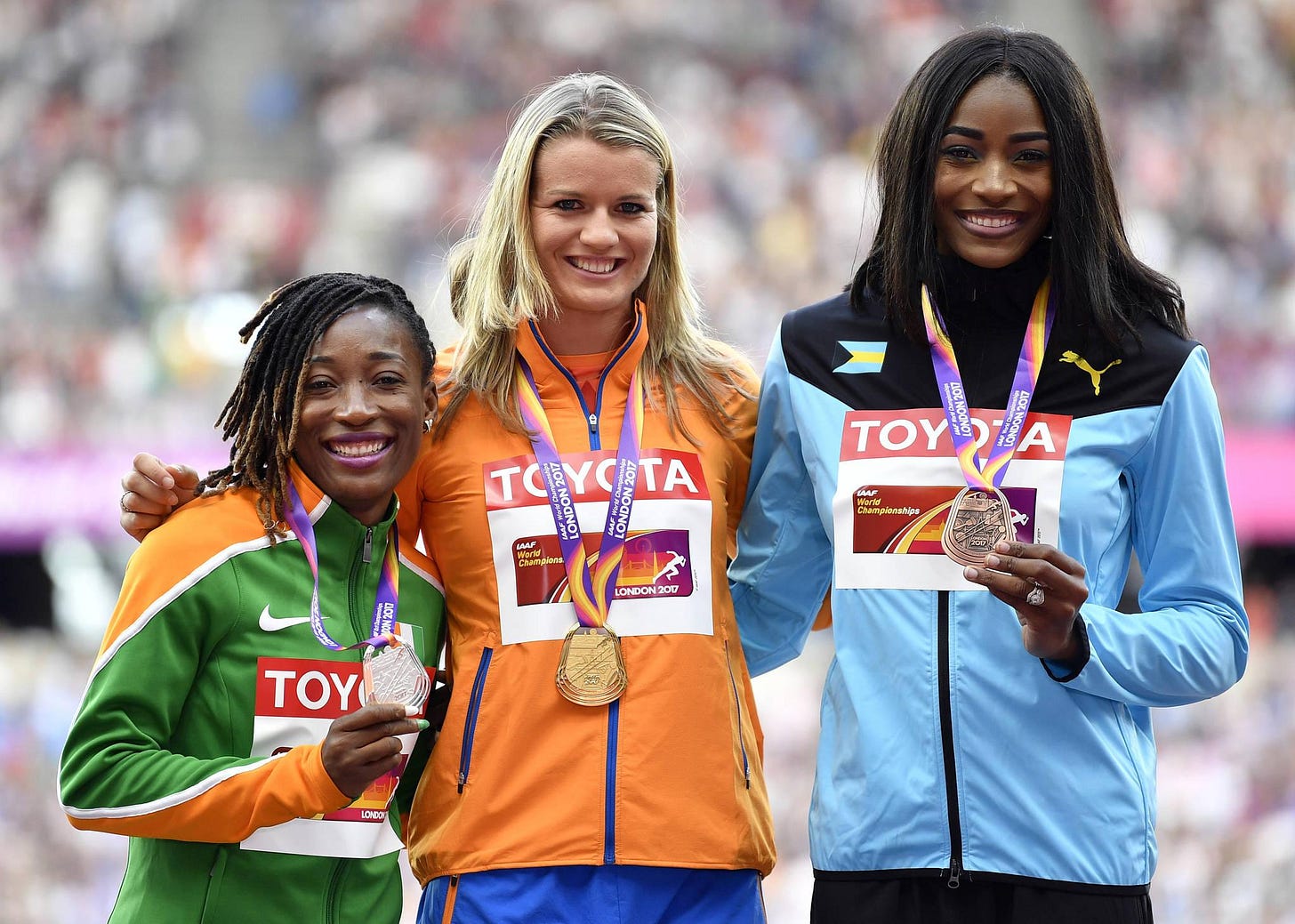What Makes Olympic Success?
5 minute read · Issue Number 79 · July 30th, 2021
Welcome to another weekly edition of Sports-Tech Biz! Every Friday, we learn about intriguing topics related to sports, business, and technology. If you’re reading this online or in a forwarded email, sign up for the newsletter:
Happy Friday!
I’m excited to share with you that I just became a scout for Sahil Lavingia’s fund.
What does it mean for you?
If your startup is looking to raise some capital, I may be able to help you.
If you’re interested, please reach out anytime by answering these emails or through my social media channels.
On today’s STB, we explore the different reasons why some countries win more medals at the Olympic Games than others.
Shall we?
Olympic Success
Micro Perspective
Besides having natural talent, an athlete has to check many variables to become a world-class athlete, and I would argue that luck plays a HUGE role in that process.
Here’s why.
Firstly, the individual must at least have some genetic potential or natural talent.
Furthermore, nutrition, training, health, coaches, and equipment must be available throughout their development.
Lastly, even if they develop the abilities to compete, covering costs of participation could be challenging. On most occasions, athletes may need state subsidies (consequently, location becomes a factor).
Hence, you gotta be lucky even to have a slight chance of competing at the highest levels.
Macro Perspective
Taking a step back — assuming that genetic potential is randomly distributed throughout the world's population — you’d expect the # of medals won to be directly related to total population.
However – this isn’t the case.
China has only won about 6% of the medals (with almost a fifth of the world’s population). Countries like Australia, Denmark, and Finland have high shares of medals relative to their small populations.
There must be something else.
Different pieces of research suggest with relevant accuracy that a country’s economic resources are essential for producing successful Olympic athletes.
They even suggest that per capita income and population have identical effects at the margin, inferring that total GDP is one of the best predictors of national Olympic performance.
The reasons?
Those countries can allocate more capital to sports development, nutrition, and facilities.
Presumably, having resources to invest in human ability is vital in producing Olympic success.
Lastly, the investigation found that GDP is not the whole story of Olympic success – host countries typically win an additional 1.8% of the medals beyond what would be predicted by their GDP & population alone.
The Bottom Line
On the one hand, becoming an Olympic-level athlete is a mix of location, genetics, hard work, and luck.
On the other hand, the economic resources and population may help us predict how many different countries will win.
Nevertheless, I believe more factors influence Olympic success that we can’t understand because they’re just so hard to measure.
For instance, the quality and quantity of technologies that national federations have implemented in their sports, the innovation, corruption, and type of government in the country, trends and culture toward social discipline and perseverance, etc.
Undoubtedly, the success formula is complex. Nonetheless, it’s fascinating to witness cases where underestimated countries beat out their expectations.
🎙 Halftime Snack of the Week
Private Equity Financing in Sports Tech, Esports, and Sports Betting Startups
This week’s episode features Chad Stender – partner at SeventySix Capital!
We discussed the evolution of VC, private equity, and disruptions in sports, Chad’s perspective on the industry, mistakes to avoid as investors, the ingredients for a successful fundraiser, and so much more.
Listen on Apple | Spotify | Google
QUICKIES
📈 The French Unicorn Built on Fantasy Football; The most valuable unicorn in France could soon be Sorare, a fantasy football game played with virtual cards on the Ethereum blockchain.
🏄🏿♂️ How Olympic Surfing Is Trying to Ride the Machine Learning Wave; As surfing completes its first-ever Olympic ride, the sport is poised for another sea change thanks to artificial intelligence and big data.
On the emoji scale, how much did you enjoy today’s newsletter?
🙄 | 😐 | 🙂 | 😃 | 🤩
Until next week,
Ronen Ainbinder
Twitter: @Ronenain
Website: ronenainbinder.com
-
Sports-Tech Biz
Twitter: @sports_techbiz
Instagram: @sportstechbiz
Read more: sportstechbiz.substack.com.
-
Halftime Snacks Podcast







